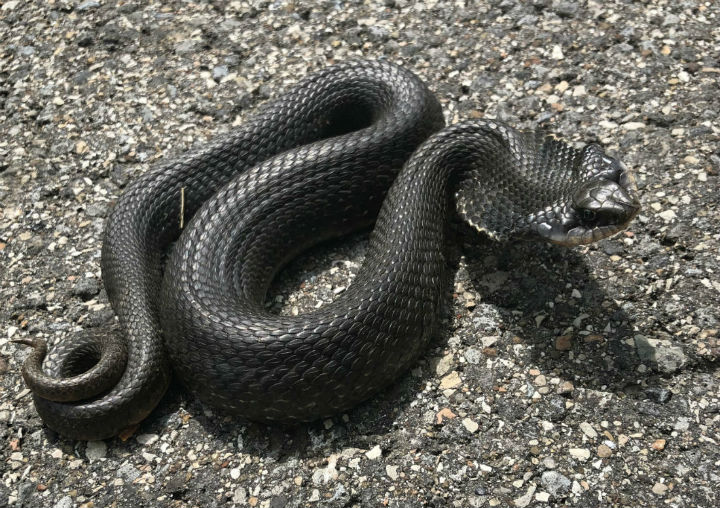A look at the habitat surrounding the lake edge that we hiked.
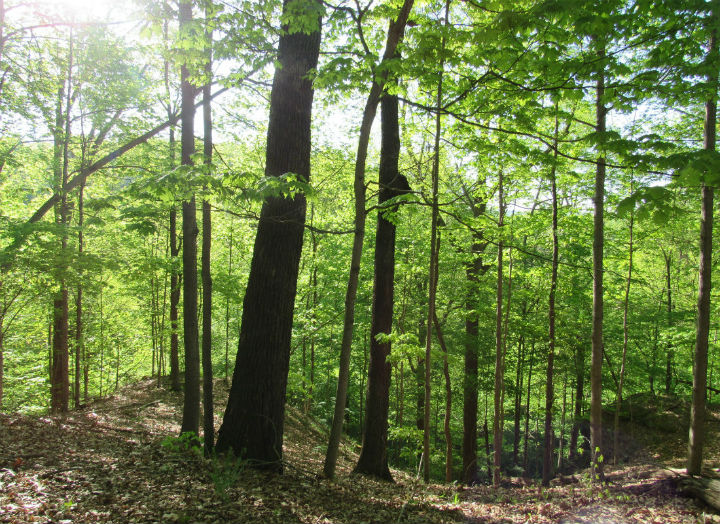
The Copperhead is well-named. This snake has heat-sensory pits between eye and nostril on each side of its head, which are able to detect minute differences in temperature.
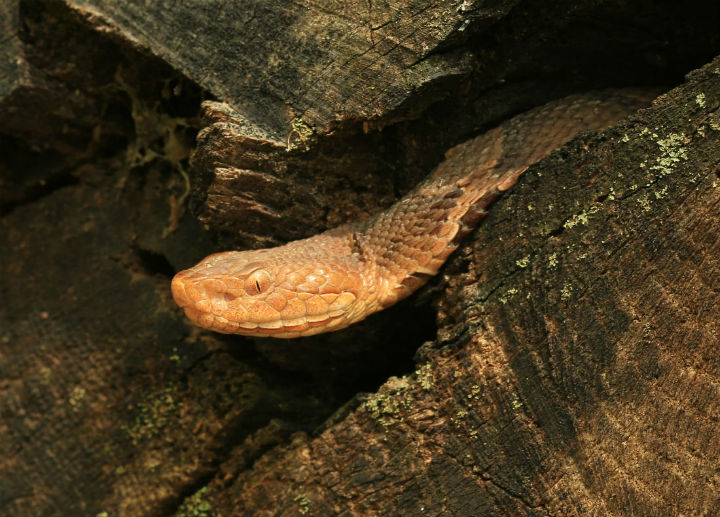
Adult Eastern Fence Lizards measure about six inches in total length. They seem to prefer elevated basking sites where they can keep an eye on their territory and watch for insects.
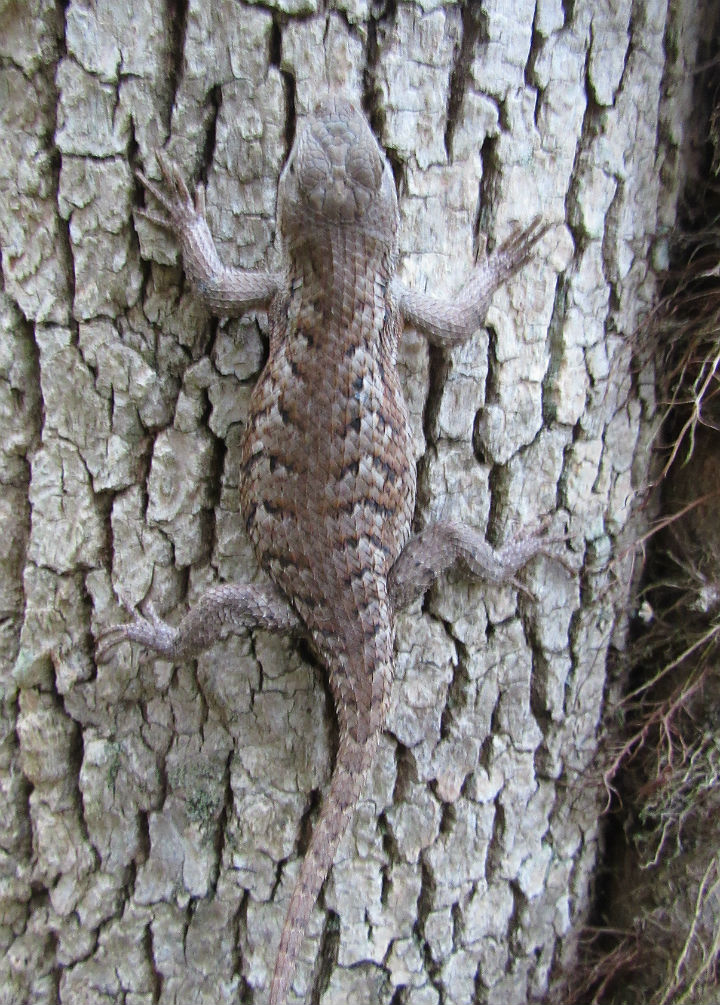
The smooth, slate-colored scales on Ringneck Snakes have a satiny luster. The undersides of these snakes are brightly marked with yellow, orange or red.
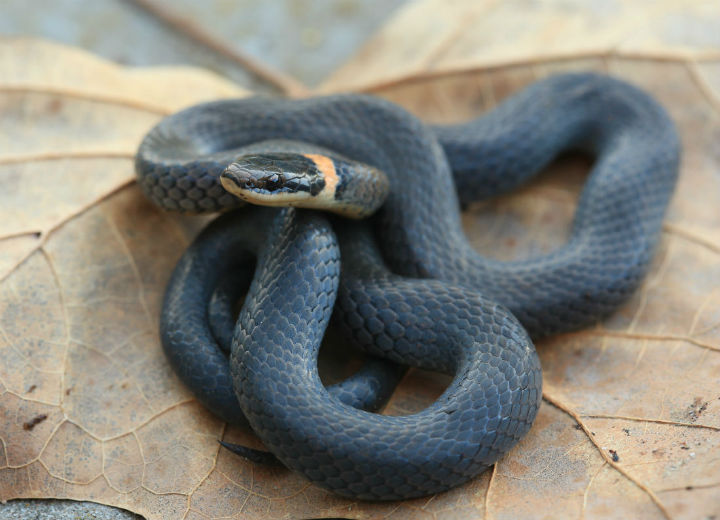
A Skipper seen on one of our hikes - Skippers are named for their quick, darting flight habits.
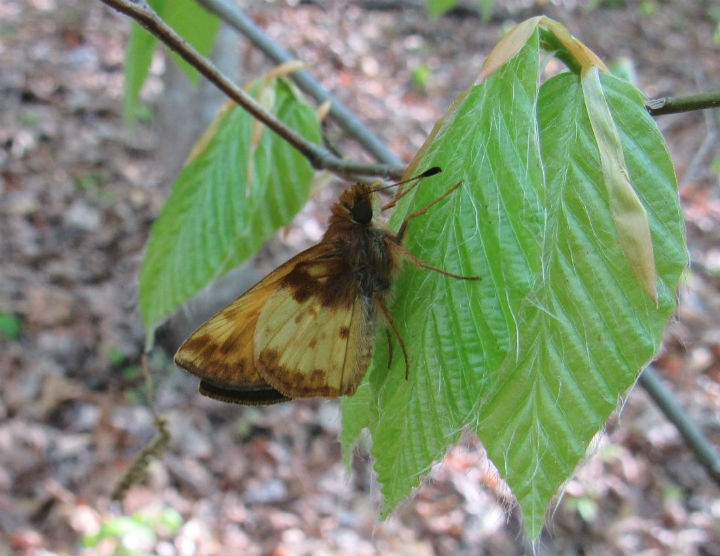
A boldly patterned young Five-lined Skink. Their bright blue tails break off easily to distract predators.
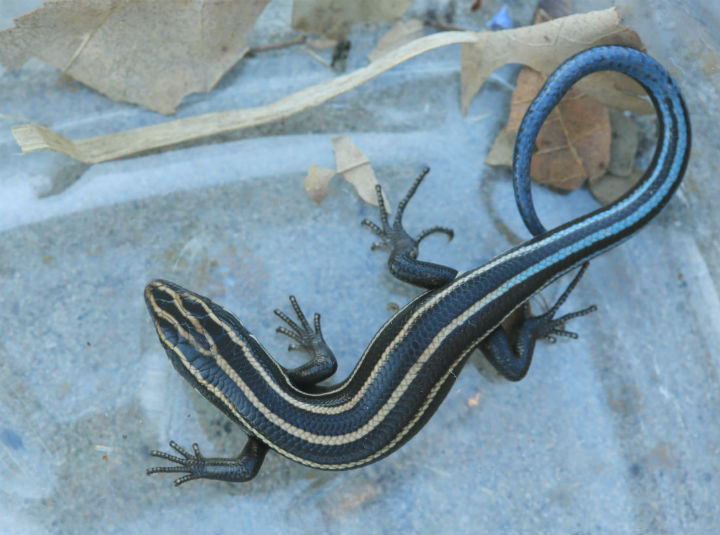
Black Racers are active during the daytime and are most often seen in warm weather. These snakes hunt by sight and actively forage during the day.
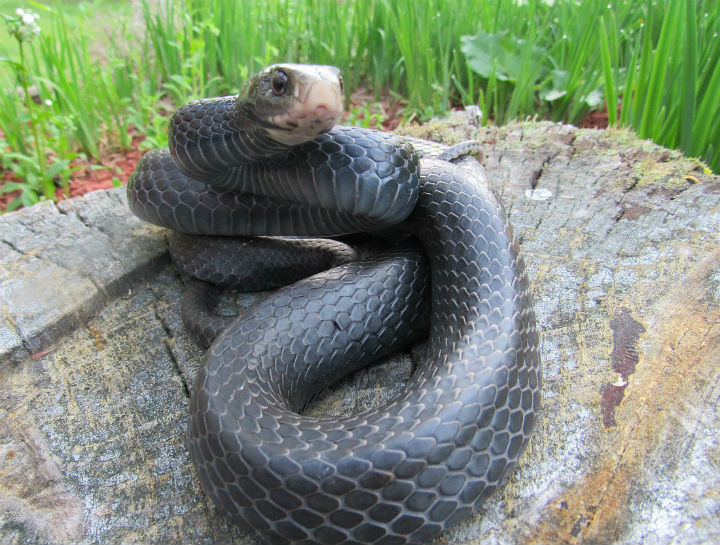
A neat "rock bridge."
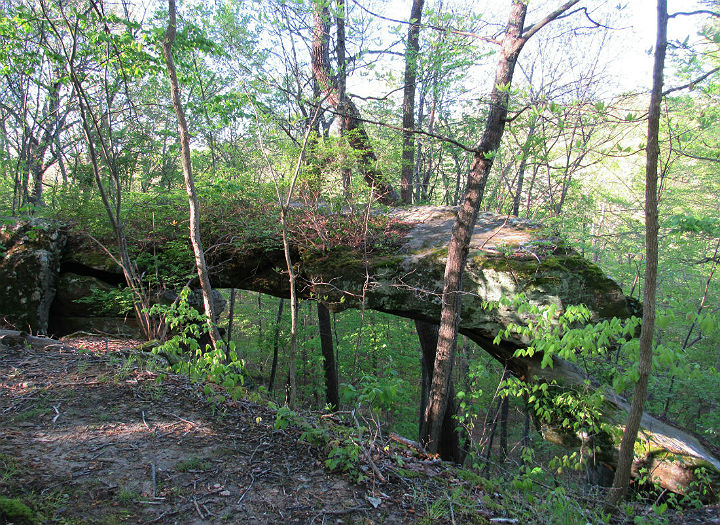
Worm Snake - these reptiles are found where there is damp soil, especially in forests. They seem to prefer soil with abundant leaf litter.
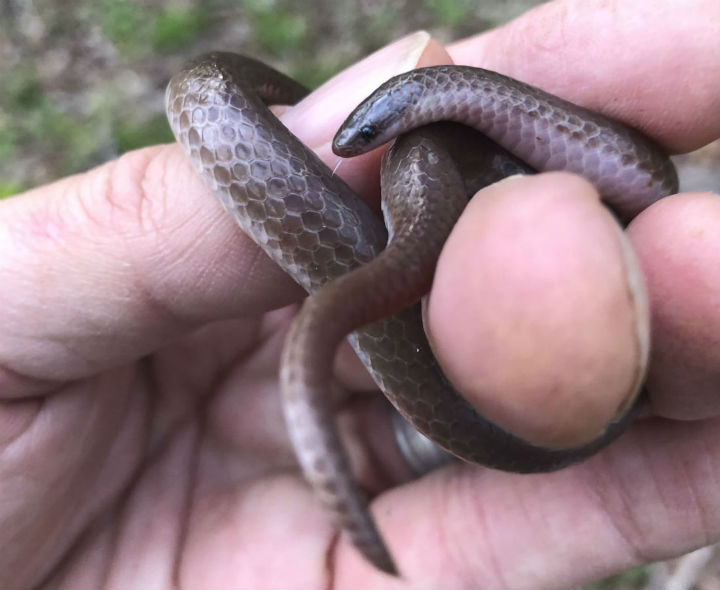
Trillium, named because its flower parts occur in threes.
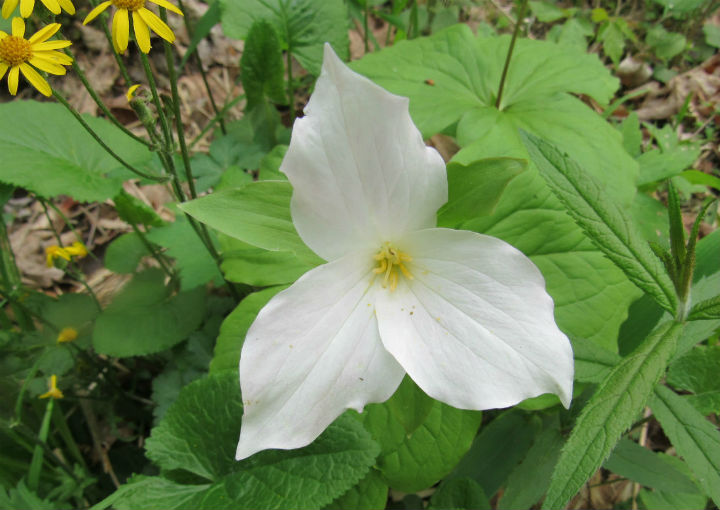
Courtship between Dusky Salamanders is more romantic-looking than in other amphibians. Males will approach a female while doing a "butterfly walk," rotating their front limbs. The male then places his snout to the snout of the female. This "kiss" often results in the female choosing the male to fertilize her eggs.
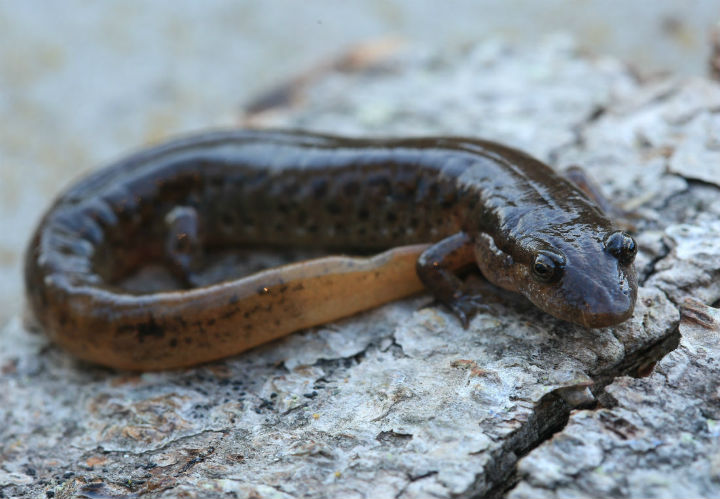
A creek running through the woods that provides habitat for a wide variety of creatures.
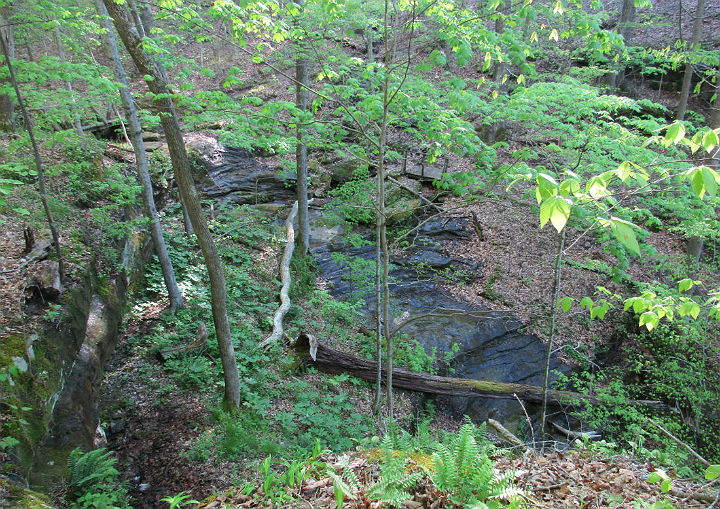
An excellent capture by Independence High School biology teacher, Scott Maretka - a Rough Green Snake. It is frequently found climbing in low vegetation, where it blends in quite well - it is often overlooked because how well it can match its surroundings.
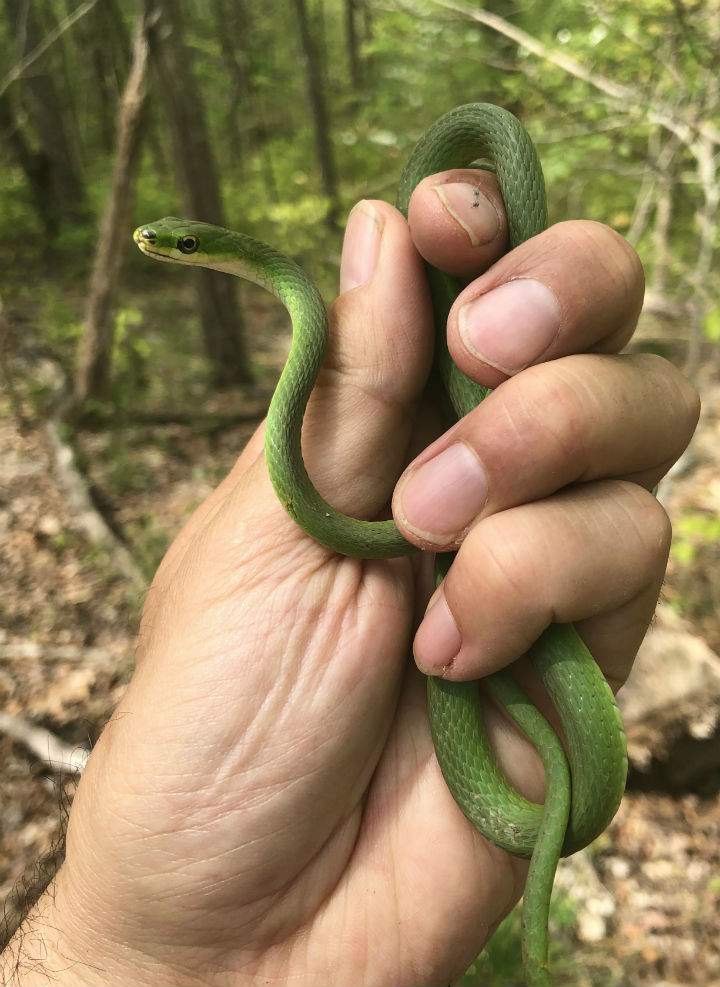
One last look at the spectacular landscape at Carter Caves State Park.
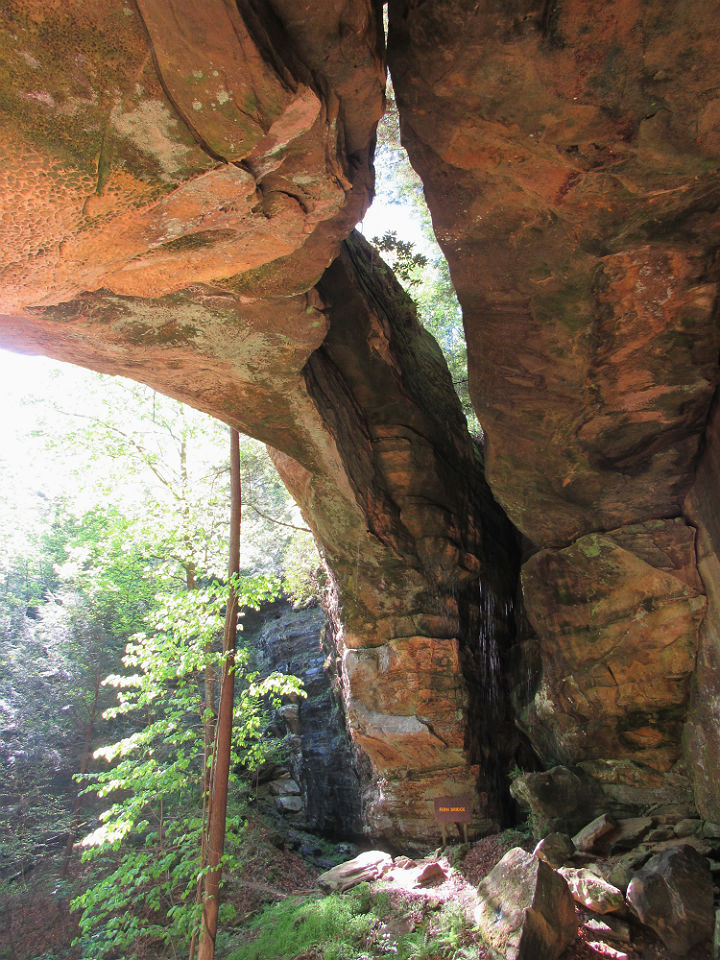
On the way home we found this super cool Eastern Hognose Snake, which though harmless, flattens out its hood like a cobra in an effort to scare away perceived threats.
